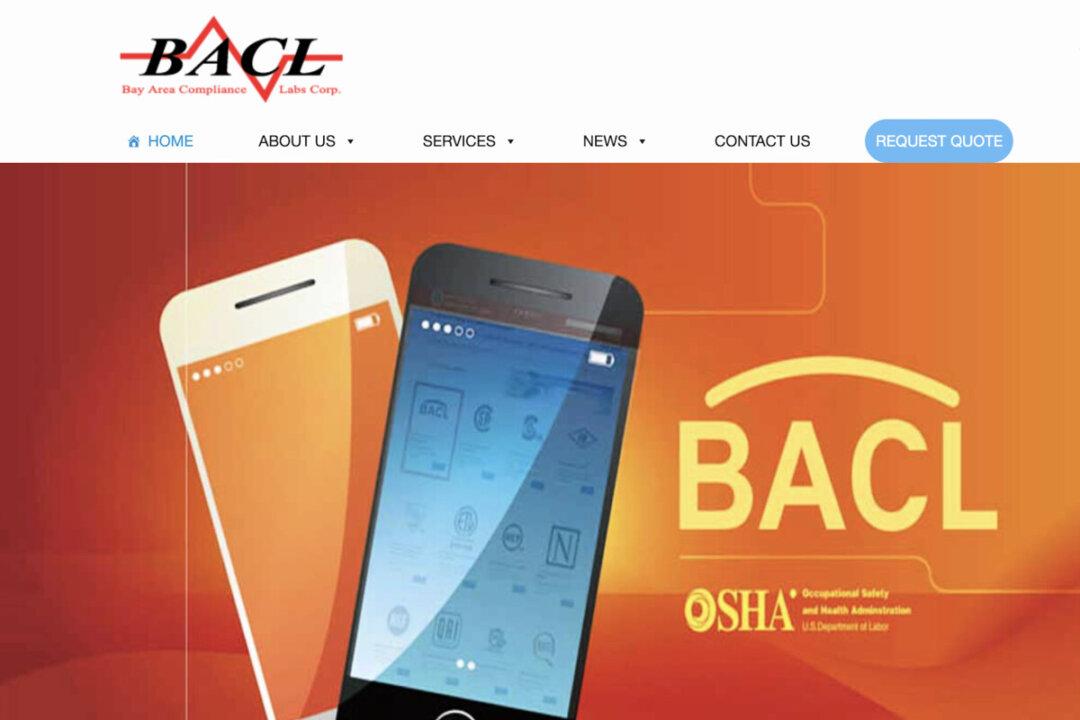A Chinese branch of a U.S.-based multinational electronics testing company has been issuing fake reports for China-made goods entering the South Korean market for eight years, Korean media reported as a massive recall of products was announced.
The recall impacted 1,696 products sold by 378 companies in South Korea, Korean media reported. The top three companies with recalled products were the large China-based companies Huawei, drone maker DJI, and Hangzhou Hikvision, accounting for about 30 percent of all forged reports.
Founded and headquartered in Sunnyvale, California, the multinational Bay Area Compliance Laboratory Corp. (BACL) performs third party certification and testing of electronic products across a number of jurisdictions. It has branches in Dongguan, Shenzhen, Chengdu, Shanghai, and other cities in China, as well as Taiwan, South Korea and South East Asia. All of the China-based branches belong to the same Chinese cooperation, according to a BACL staff member at one of the Chinese branches.
According to News Korea, the Ministry of Science and Technology of South Korea said that the Korean police are investigating a Chinese branch of BACL for allegedly releasing forged U.S. BACL test reports for broadcast communications equipment sold in South Korea.





